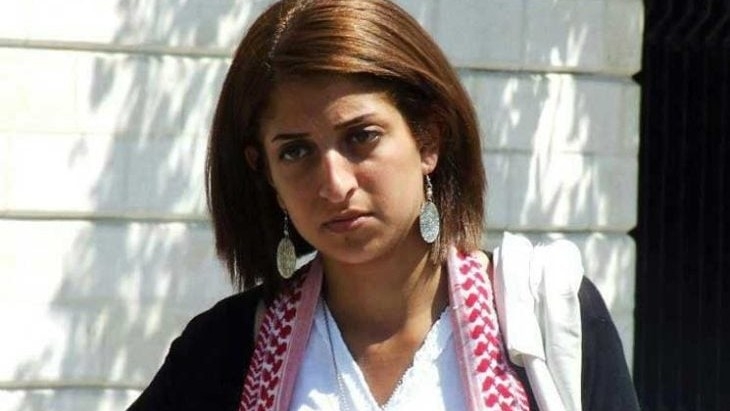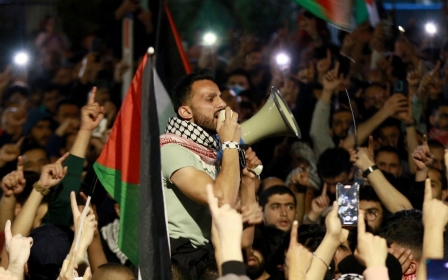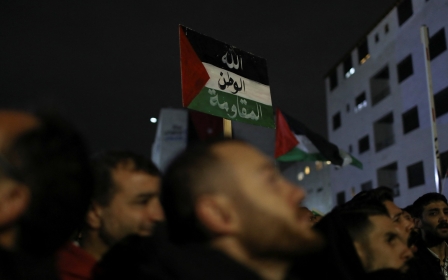Jordan jails journalist over report on 'land corridor' with Israel

Jordanian journalist Hiba Abu Taha has been sentenced to a year in prison for publishing a report that exposed Jordan’s alleged role in exporting goods to Israel through a land corridor.
The report, entitled “Partners in genocide... Jordanian capital involved in genocide in the Gaza Strip" was published in Annasher, an Lebanese media outlet.
It describes the involvement of some Jordanian companies in shipping goods to Israel through a land corridor.
In February, Jordanian Prime Minister Bisher Khasawneh denied the existence of a land route from his country to Israel, describing reports alleging so as “fabrications”.
He further stated that transport routes in and out of Jordan have not been changed in the last 25 years.
New MEE newsletter: Jerusalem Dispatch
Sign up to get the latest insights and analysis on Israel-Palestine, alongside Turkey Unpacked and other MEE newsletters
The verdict comes after Abu Taha was arrested for a week in May after a complaint filed against her by the Jordanian Media Commission for her report.
Her lawyer will submit an appeal against the sentence, local media outlets reported.
'False news'
Abu Taha is charged with “inciting strife and spreading false news” under the country’s cybercrime law.
Last year, Jordan's King Abdullah II approved the controversial cybercrime law which has been decried by rights groups and journalists as an attack on free speech.
The bill, which has been passed by both houses of parliament, comes as authorities crack down on journalists and writers over posts on social media.
Rights groups have denounced the "draconian" bill for using "imprecise, vague and undefined terminology" such as "fake news", "promoting, instigating, aiding or inciting immorality", "online assassination of personality", "provoking strife", "undermining national unity" and "contempt for religions".
According to the Committee to Protect Journalists, Abu Taha contributes to several media outlets, including Jordan Today, Al Jazeera and the Beirut-based investigative journalism website Daraj.
The Center for Defending Freedom of Journalists (CDFJ), a Jordanian non-governmental organisation, has denounced the ruling and called for the "abolition of freedom-depriving provisions in publishing cases".
Since war broke out in Gaza on 7 October, Jordan has been cracking down on journalism and activism, especially after demonstrations at the Israeli embassy in Amman in March.
Human rights groups, including Amnesty and Human Rights Watch, have called on Jordan to end its targeting of journalists and pro-Palestine activists.
In August 2023, Abu Taha was briefly detained on charges of writing an online post against Jordanian King Abdullah II.
Her charge was “defaming an official institution”, based on Article 191 of the Penal Code and Article 15 of the Cybercrime Law.
She was sentenced to three months' imprisonment and was fined.
Abu Taha had earlier told Middle East Eye she was surprised that a post she published on Facebook brought a charge of defaming an institution even though the king is not an institution according to article 191. Instead, if they wanted, "they could have charged me with defaming the king (article 195) in the same penal code".
Middle East Eye delivers independent and unrivalled coverage and analysis of the Middle East, North Africa and beyond. To learn more about republishing this content and the associated fees, please fill out this form. More about MEE can be found here.





